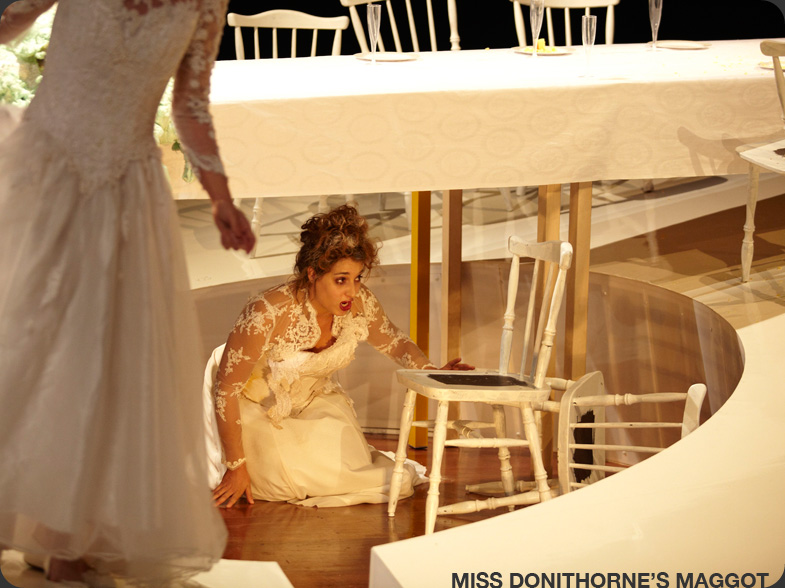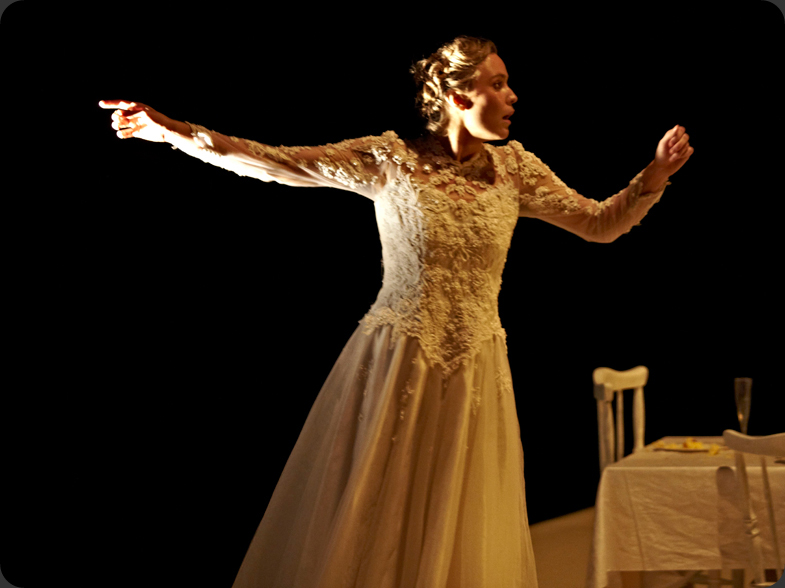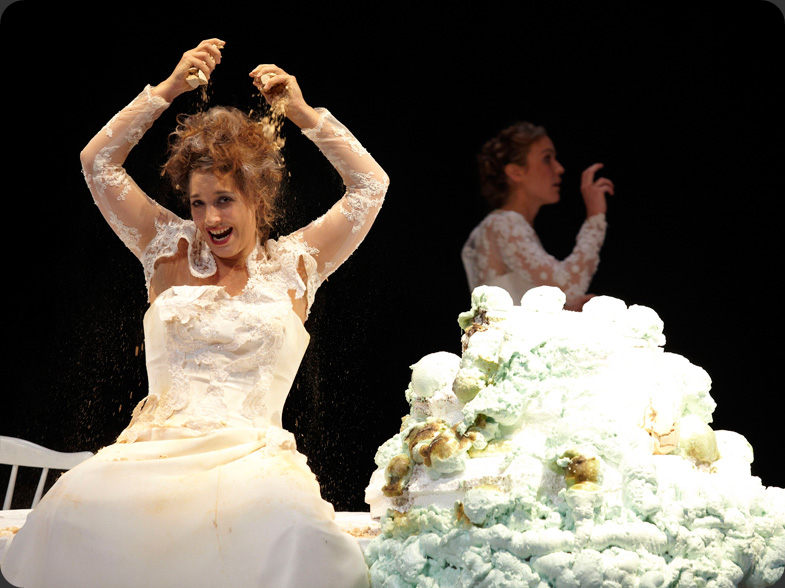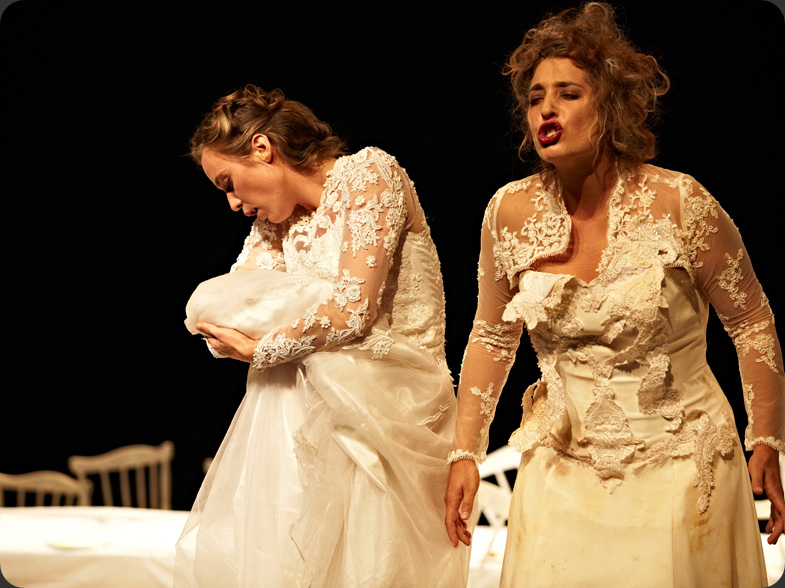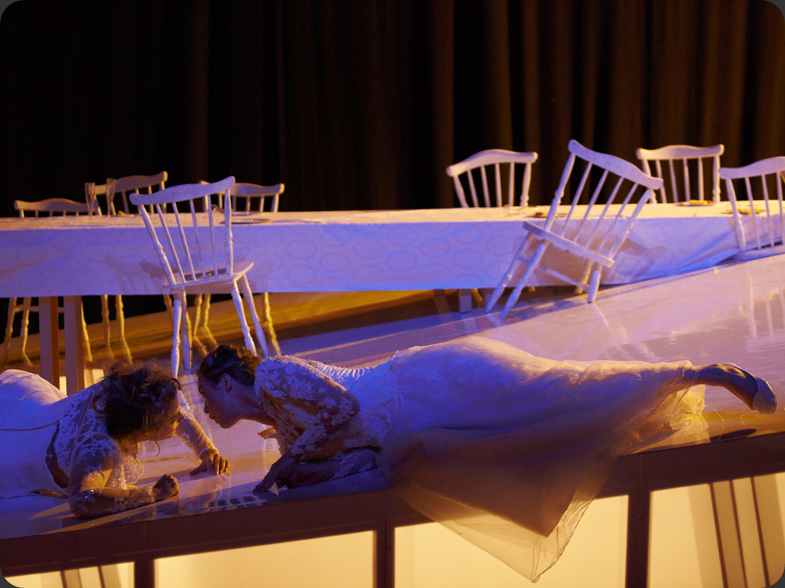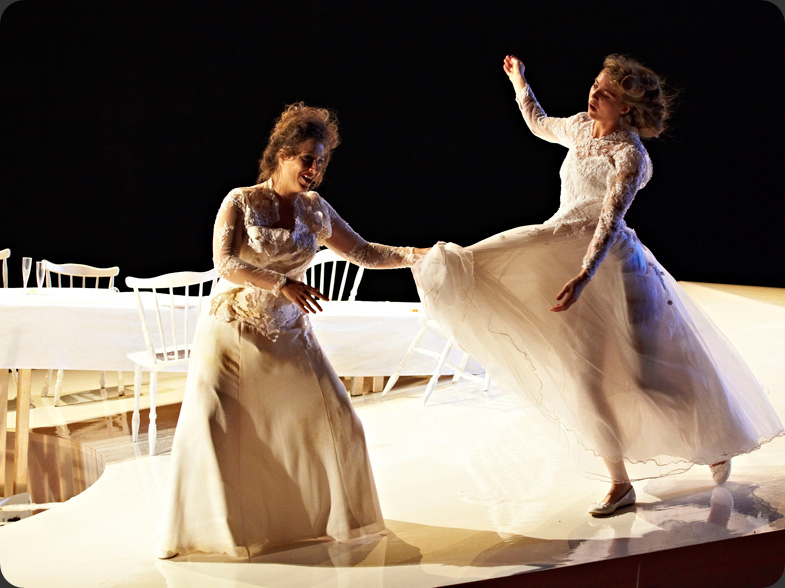
Conductor // Christian Karlsen
Orchestra // New European Ensemble
Stage director // Lotte de Beer
Stage, costume and light design // Clement & Sanôu
Alto // Carina Vinke
Actress // Ilse Ott
Programme // Hans Werner Henze, Sonata for Six Players Arnold Schönberg:
Giraud // Pierrot Lunaire op. 21
Peter Maxwell Davies // Miss Donnithorne's Maggot
Première // Chamber Opera Festival Zwolle

Pierrot Lunaire //
Moonstruck Intoxication is a double bill of Schönbergs masterpiece Pierrot Lunaire and the monodrama Miss Donnithorne’s Maggot by Maxwell Davies created by Operafront and the New European Ensemble for the Chamber Opera Festival Zwolle.
The 21 poets that form Pierrot Lunaire, describe an absurdistic dreamed world in which the commedia dell’Arte figure Pierrot Lunaire plays the main role. The piece consists of three parts. The first seven poems describe a state of so called ‘moon sickness’. They express unfulfilled longing, past hope, a fresh sorrow for love that has disappeared. The middle part is extremely black in its images. It starts with a description of the sun being murdered by gigantic moths. It feels like you are being torn into a deep depression. We hear about desecration of a grave, a bloody communion wafer, and the gallows as a last lover. Then, in the third part, there seems to be a grand kind of purification. The black texts make way for an absurdism that is almost childish in its description of the images.
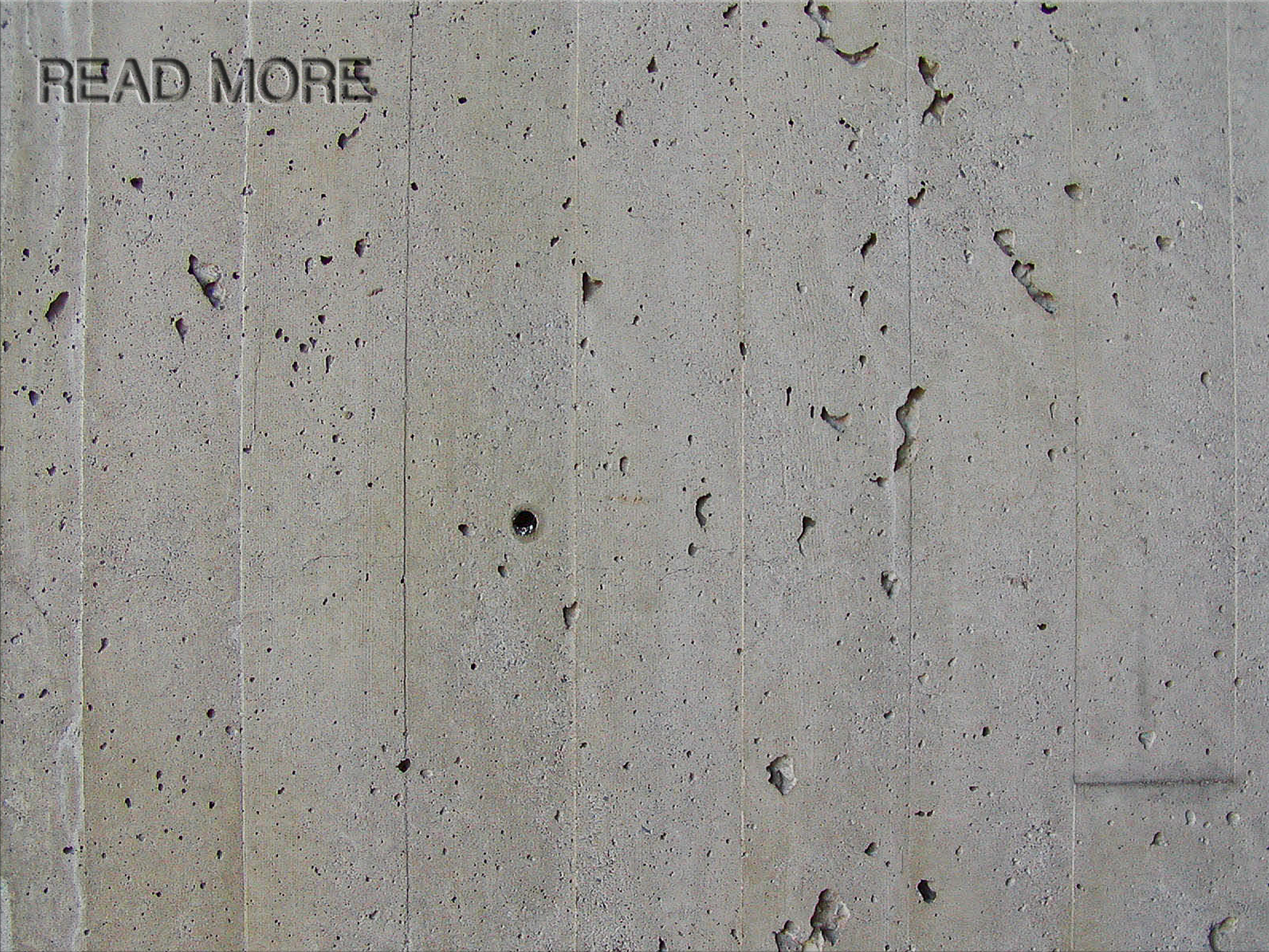
We see a woman, at night, alone in her bathroom. She is feeling sick of too much alcohol after a dramatic relationship crisis. The moon shines through a window inside and in her intoxication of wine and tears her thoughts start taking ever more absurdistic shapes. Then suddenly it isn’t clear anymore what is real and what is a dream. Her association comes to life.
A naked woman falls out of her washing machine. Is this Pierrot? Slowly the bathroom gets the possibilities of a moon landscape. Nothing is what it seems. The woman gets drawn even deeper into the depts. By her alter ego. Through the caverns of her own mind, she gets drawn to the borderline between life and death, meaning and pointlessness of it all. But she gets drawn over that.
Her Pierrot, her fool, her mirrored image, makes her look further than the tragic of her existence. From the perspective of the moon, all human problems seem negligible small and pathetic. From that position, they start playing with fate. They are children, laughing with astonishment about love and death and life.
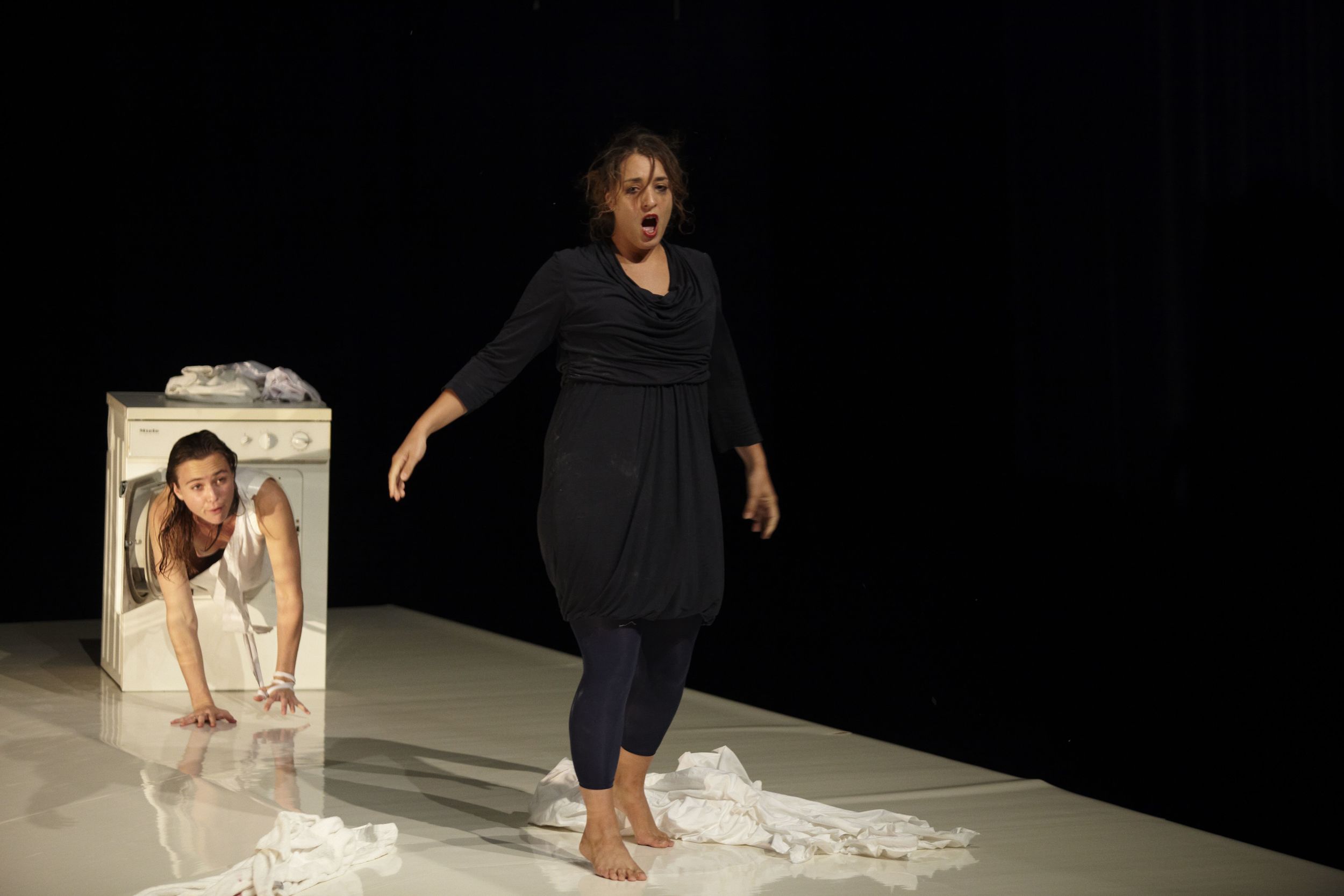
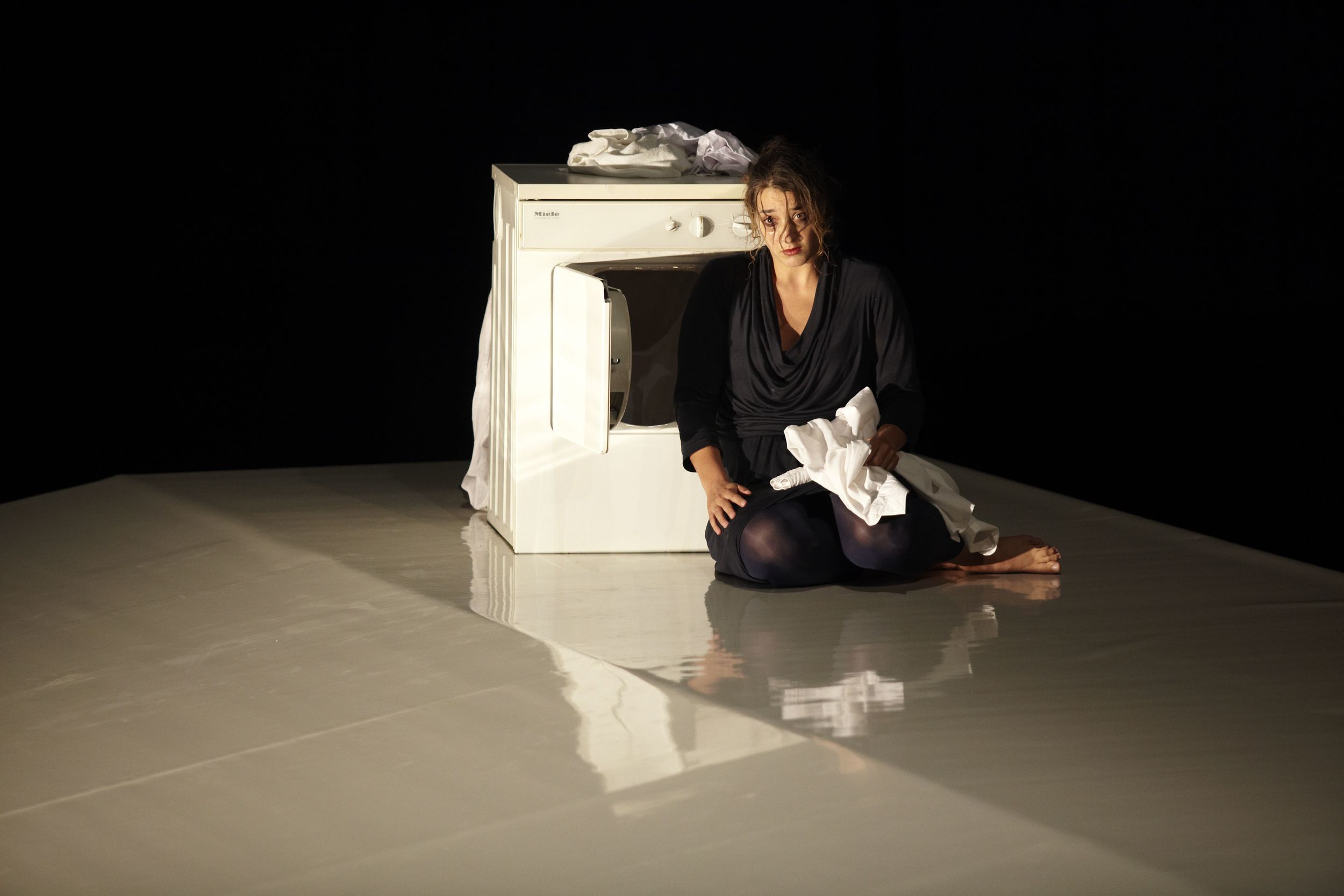
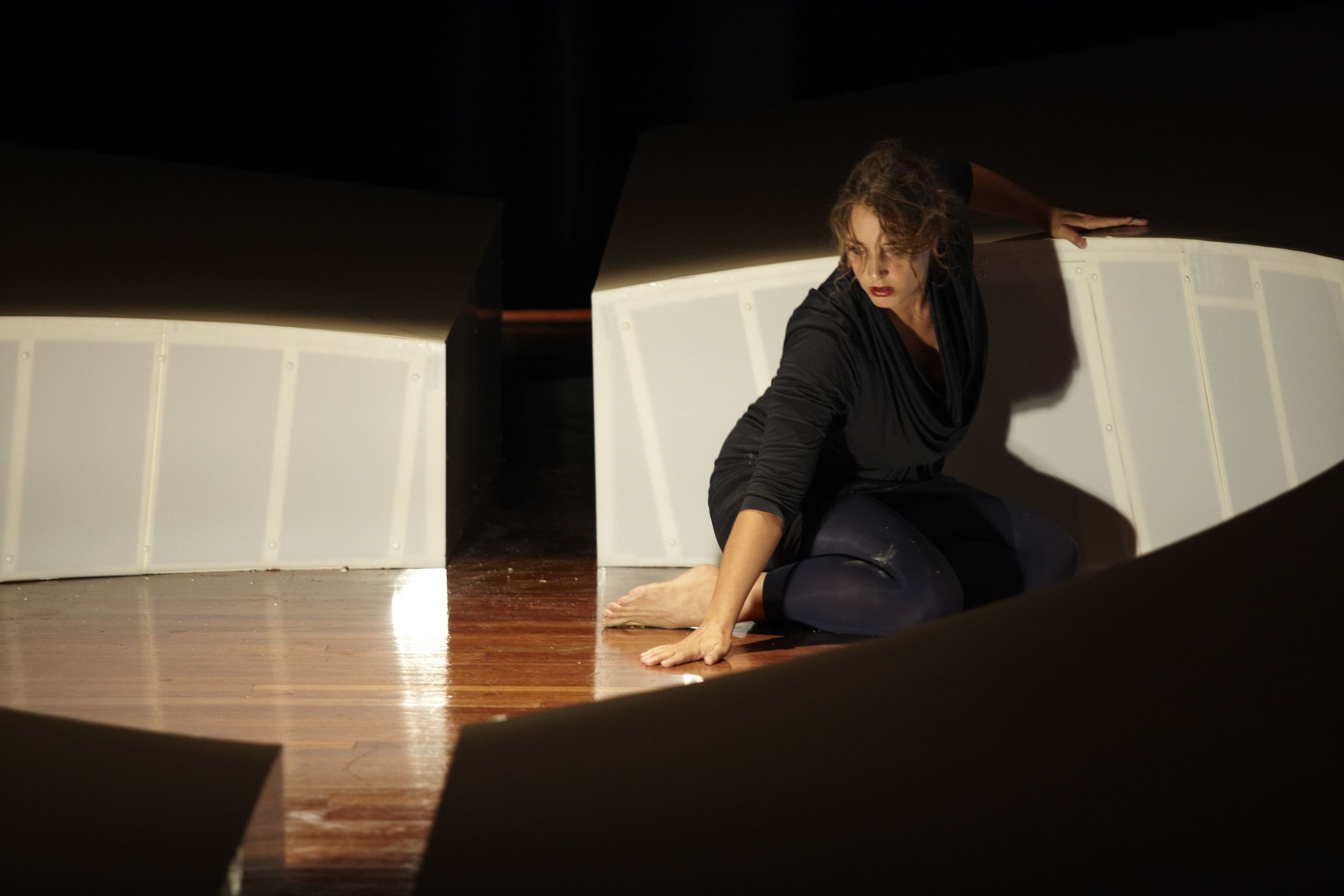
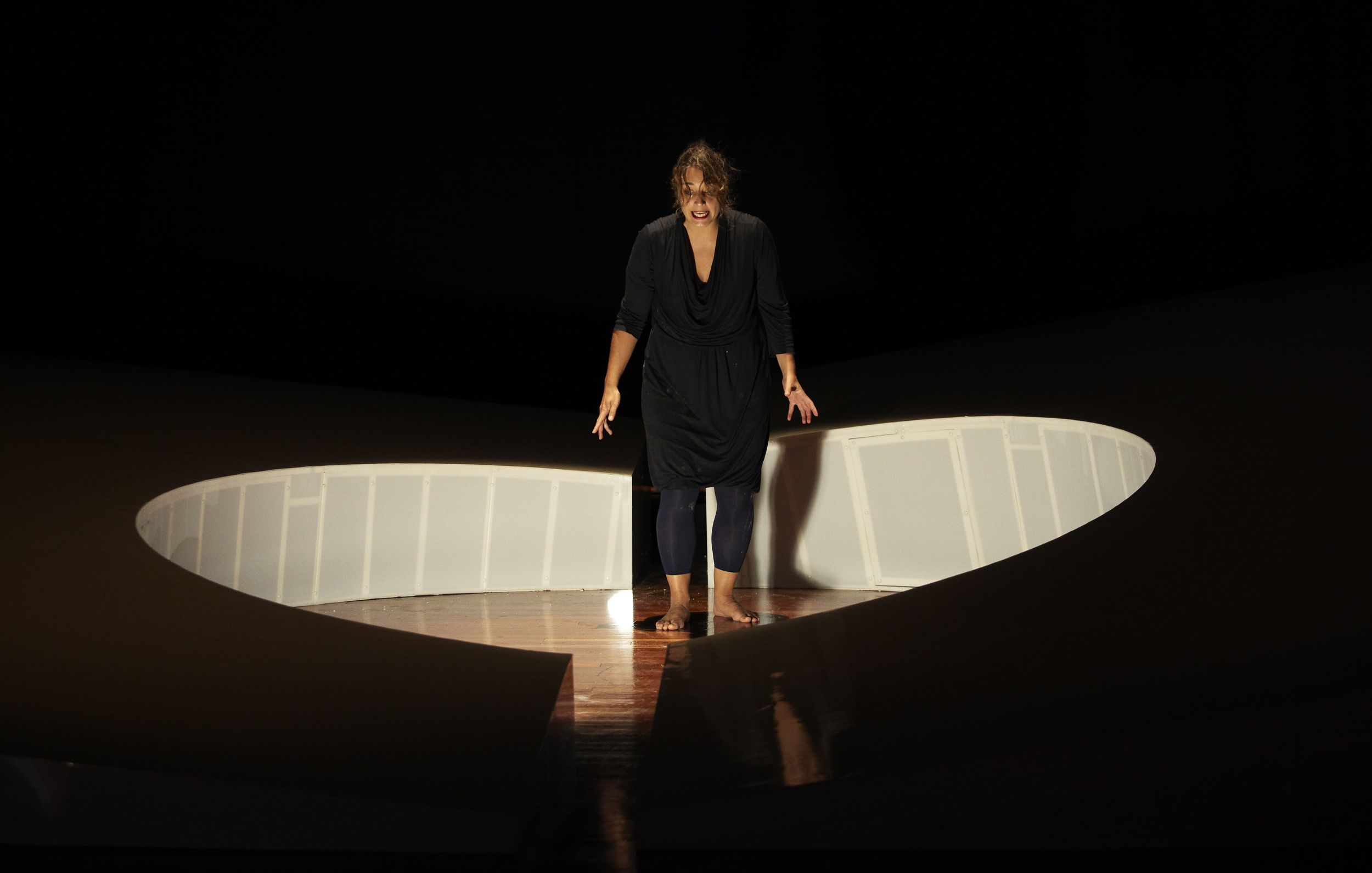
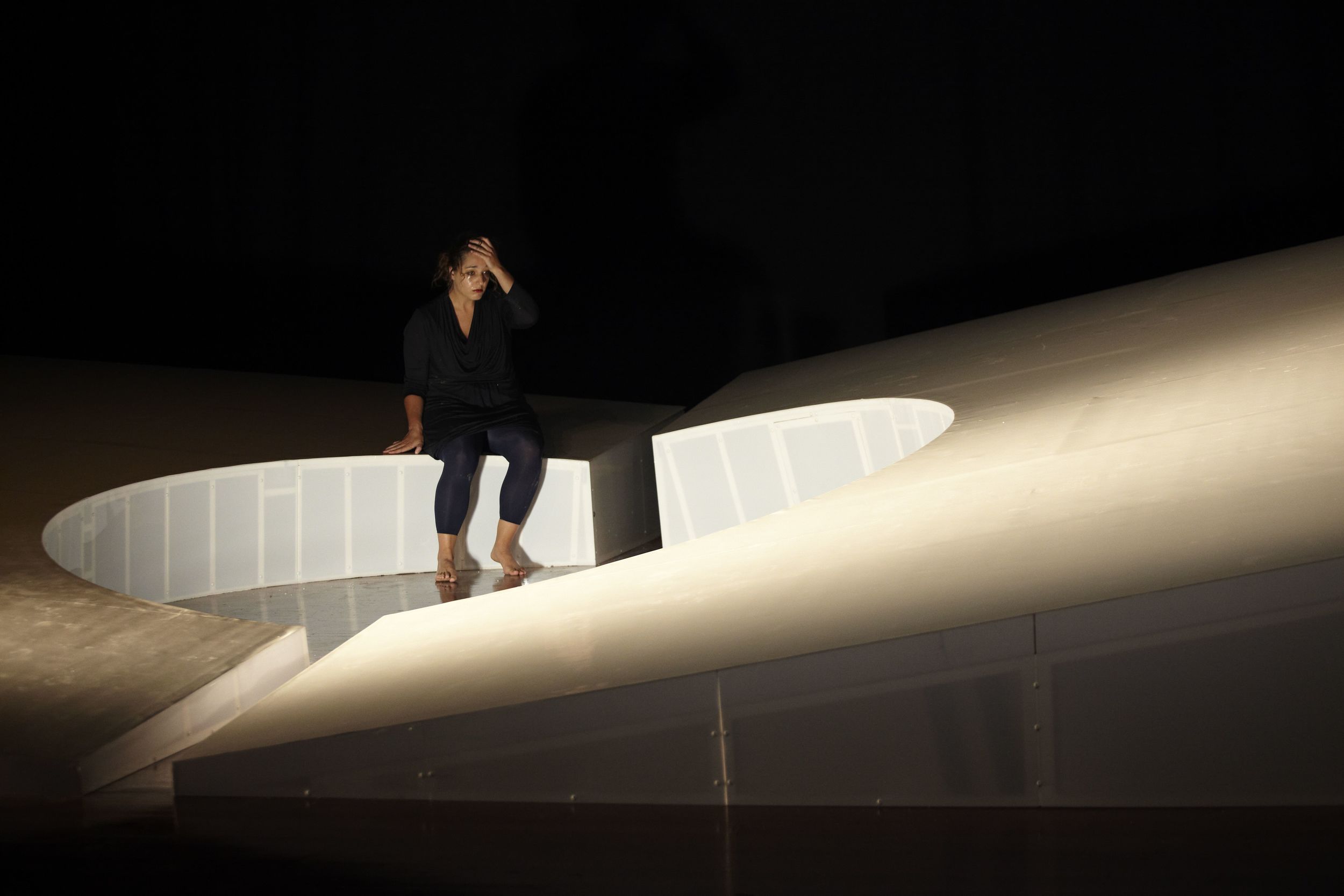
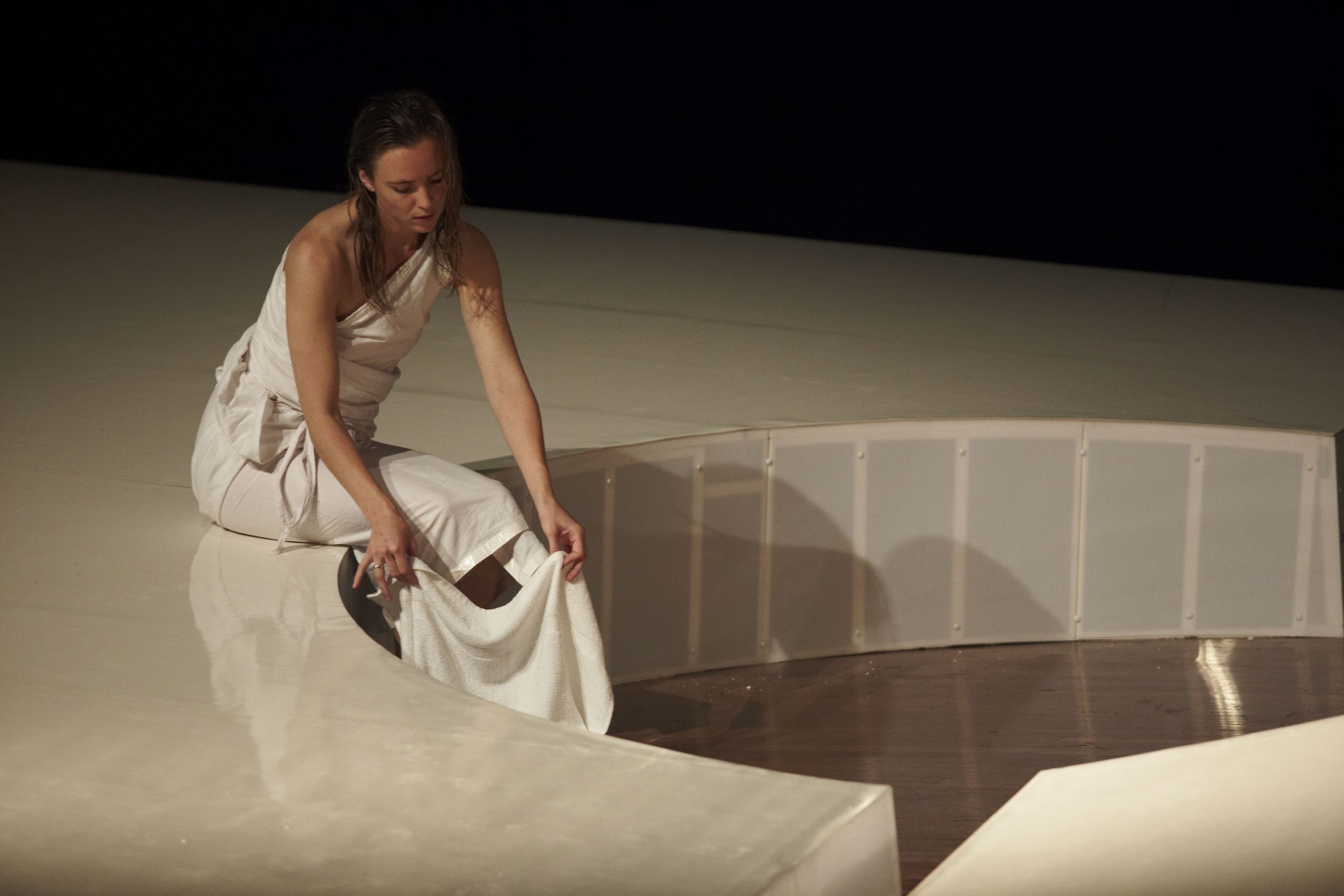
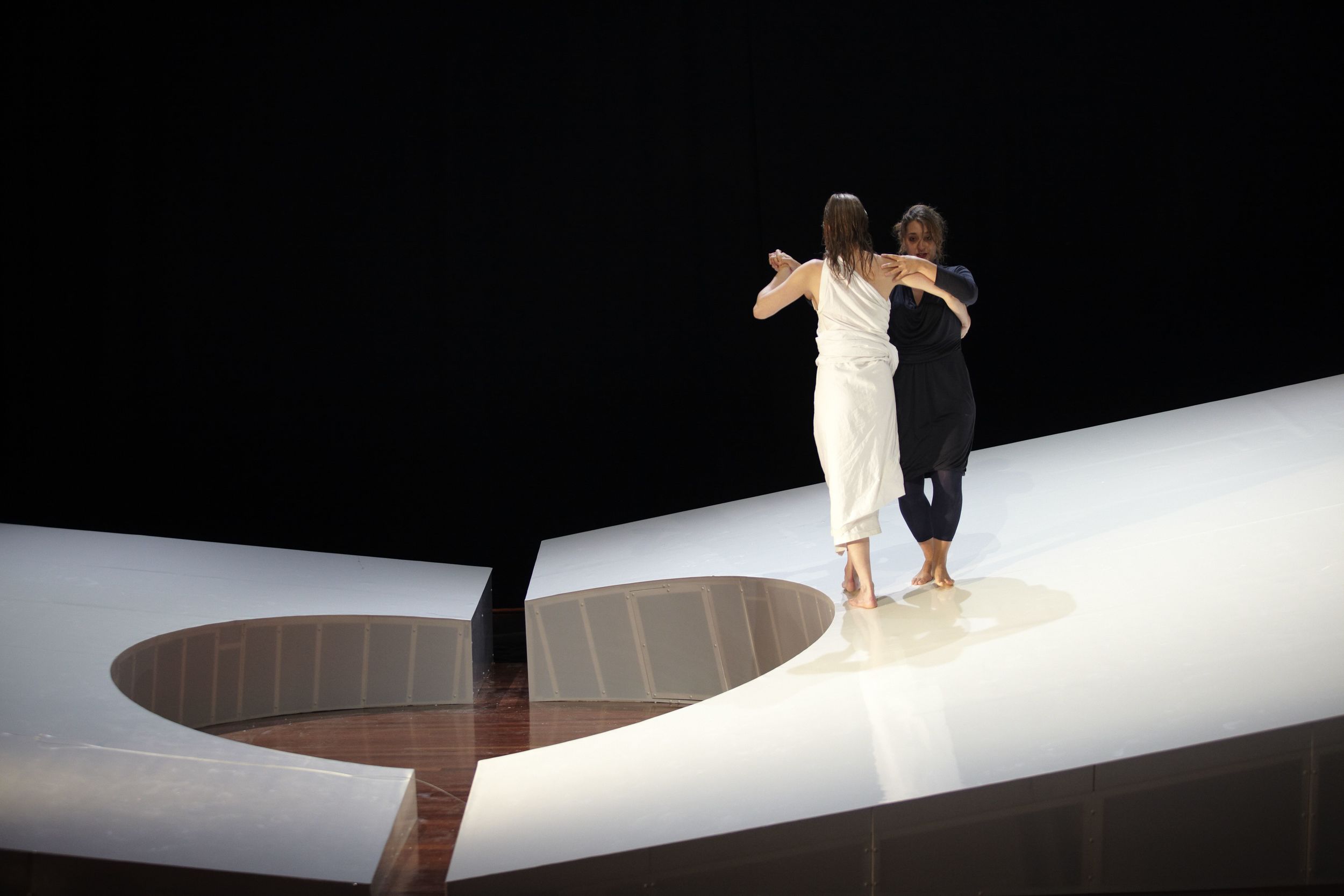
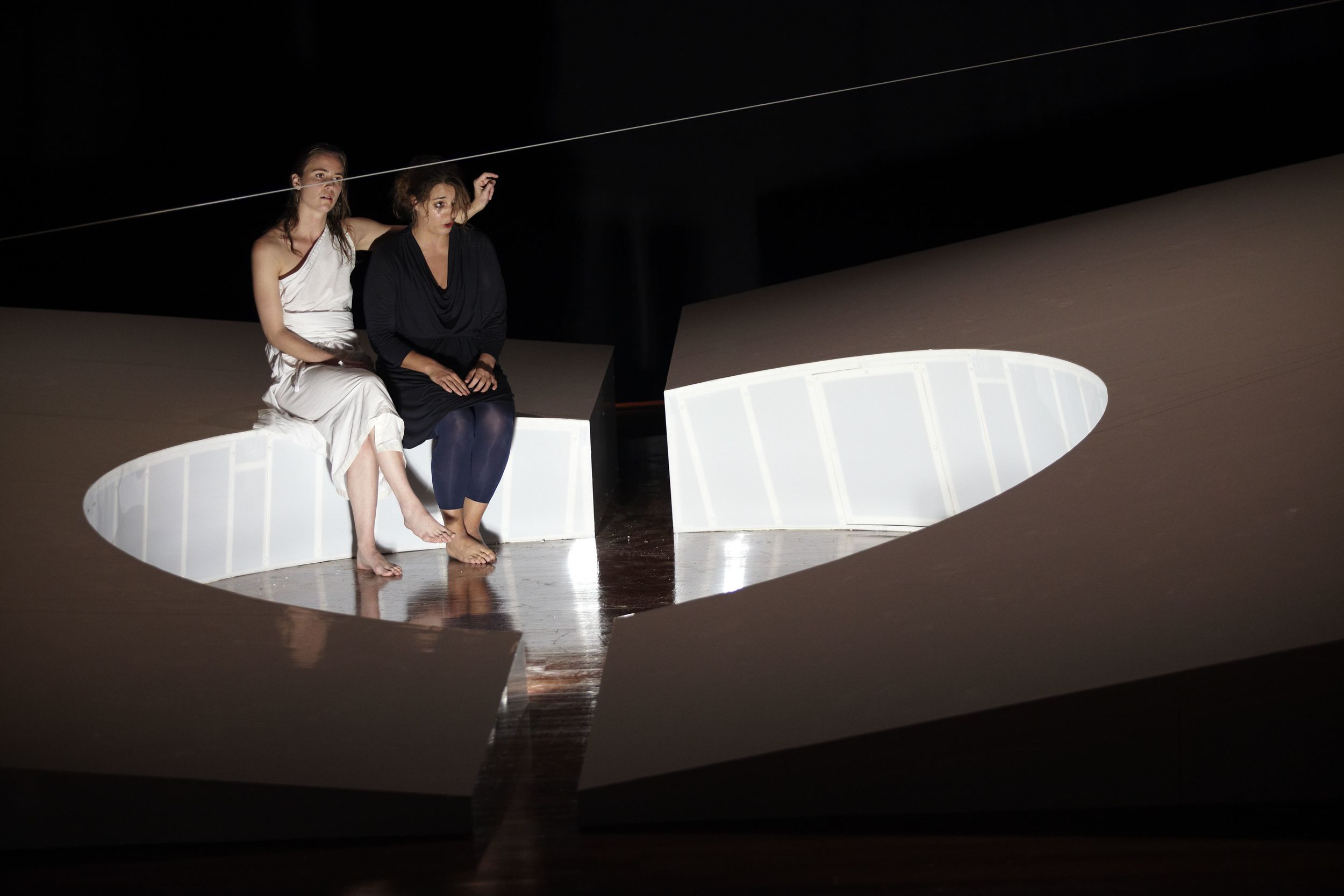
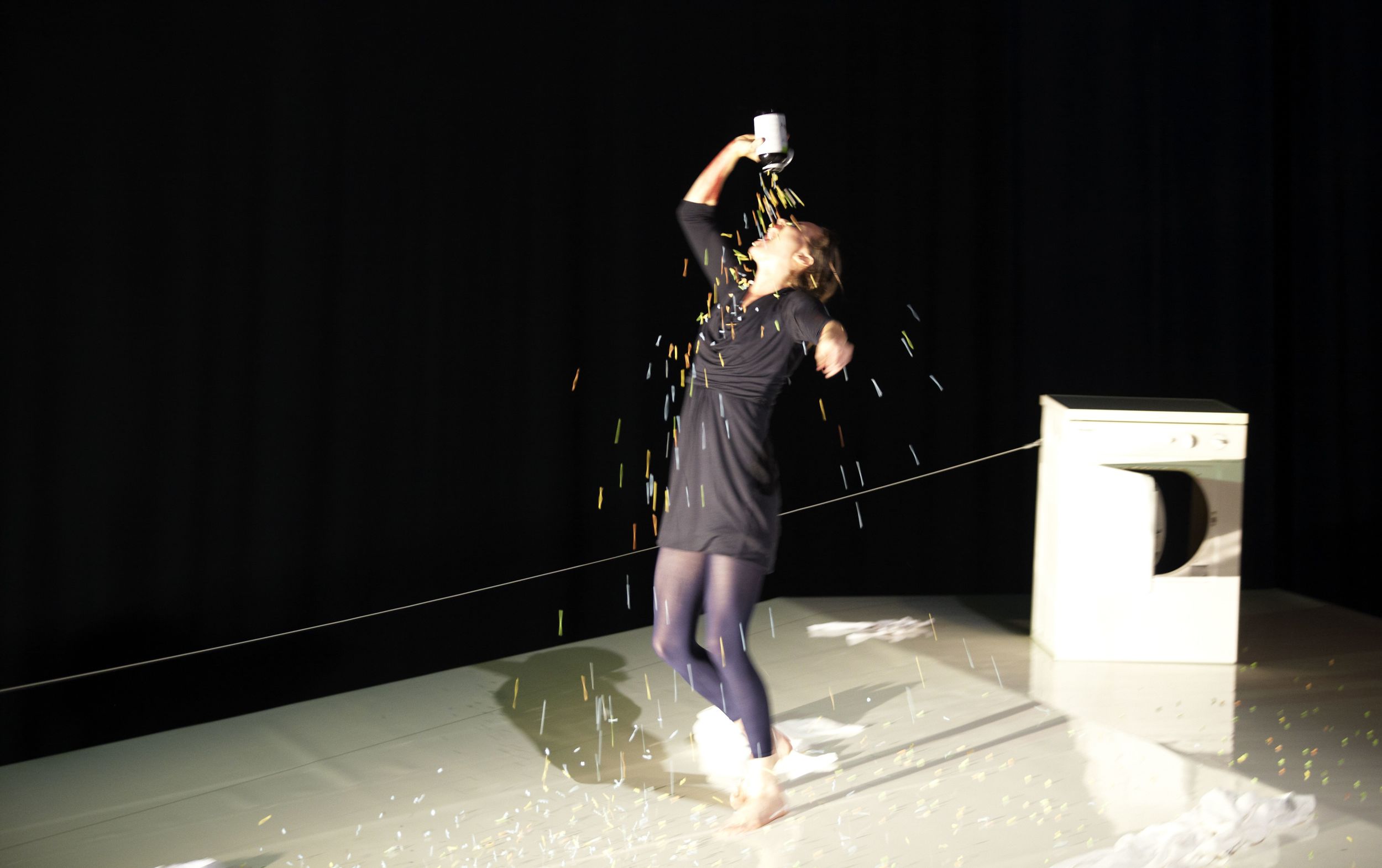
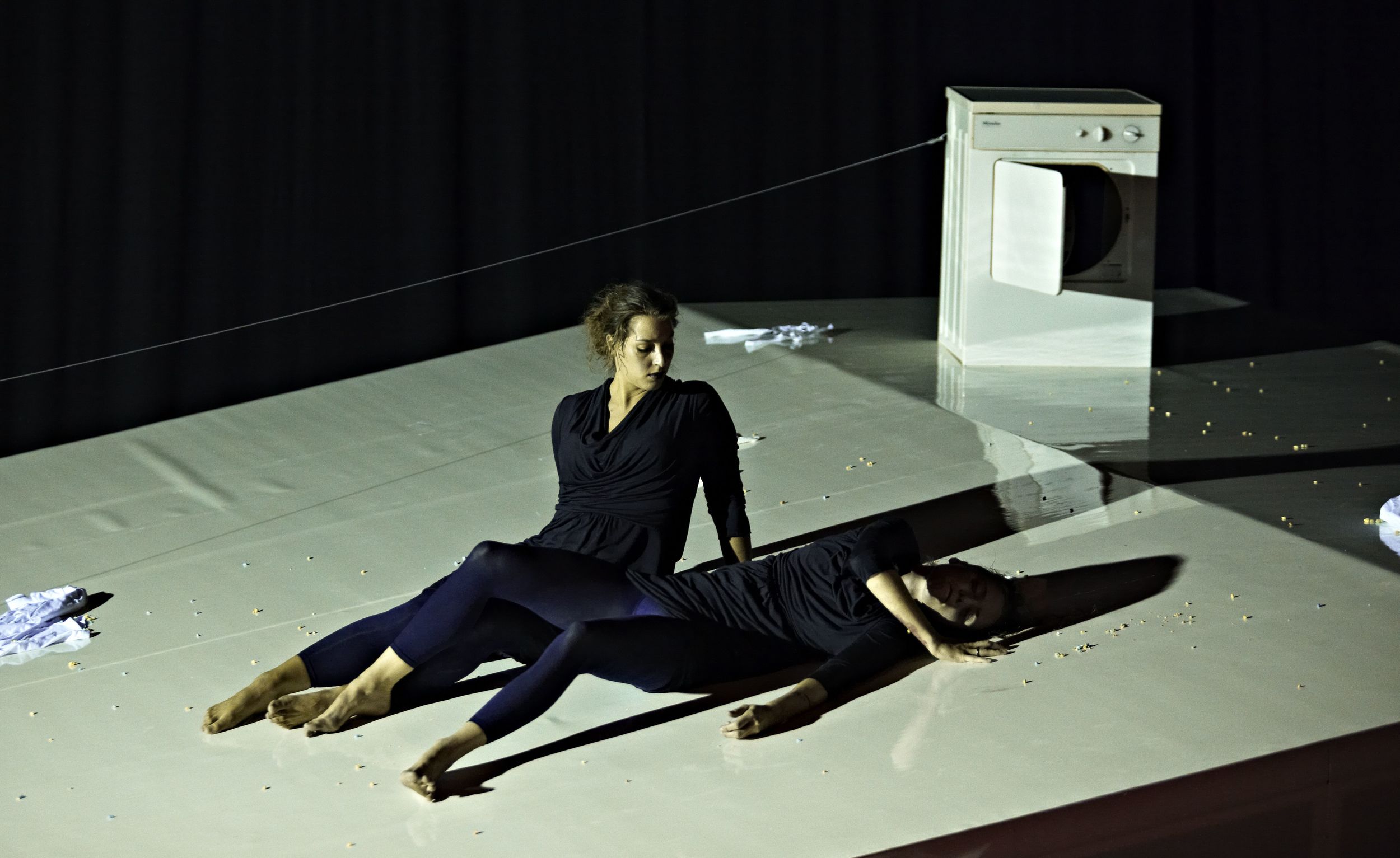
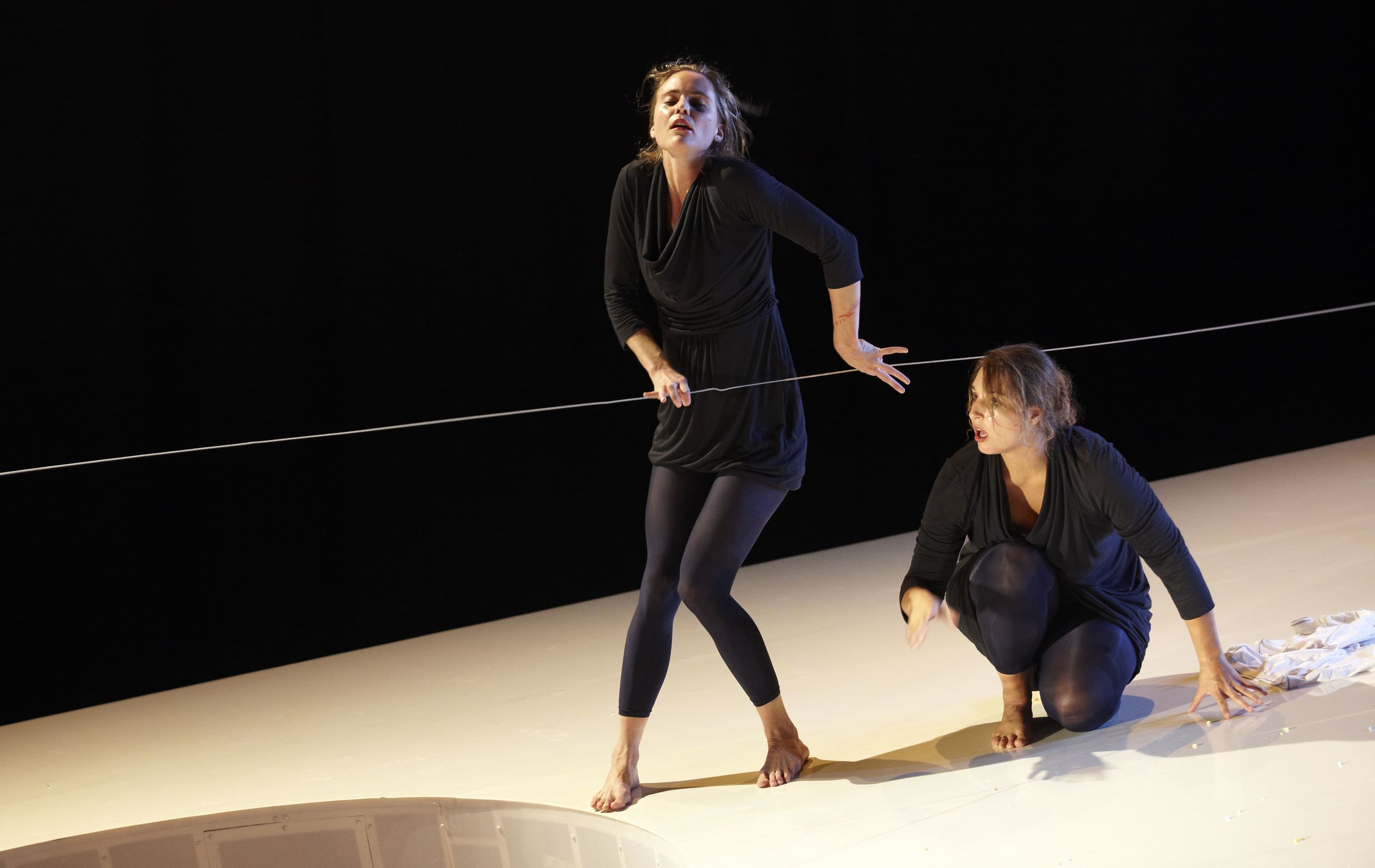
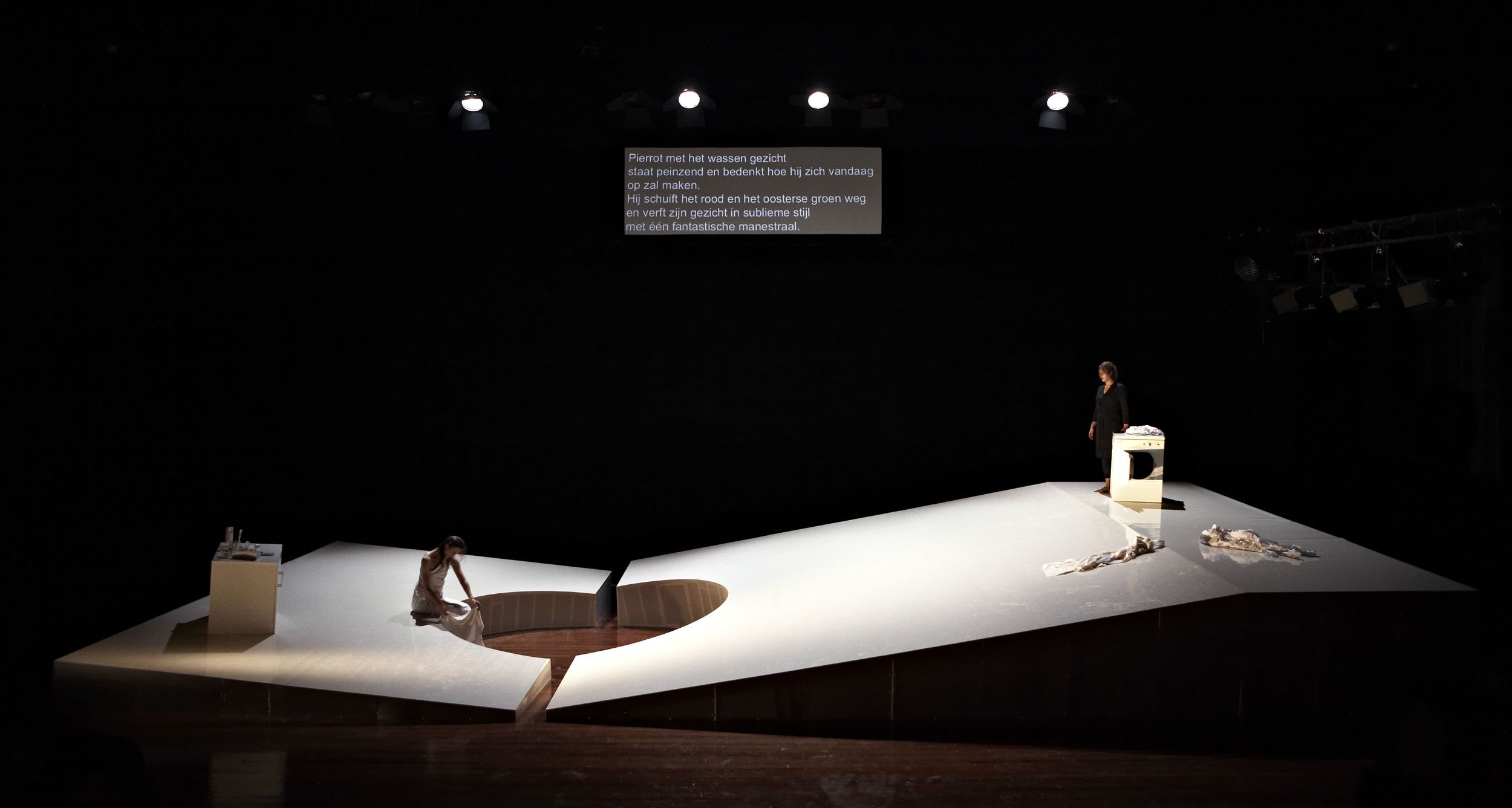
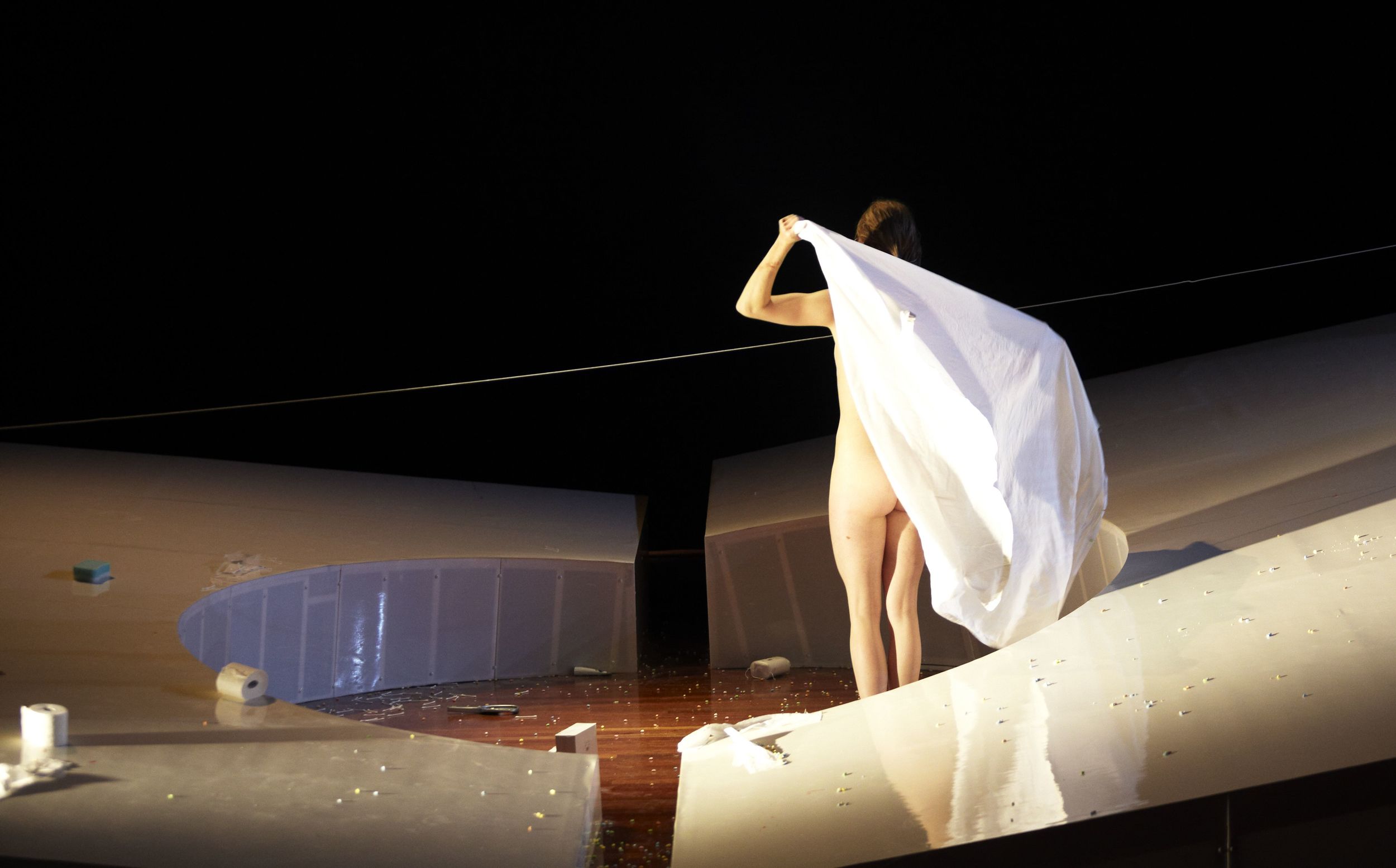
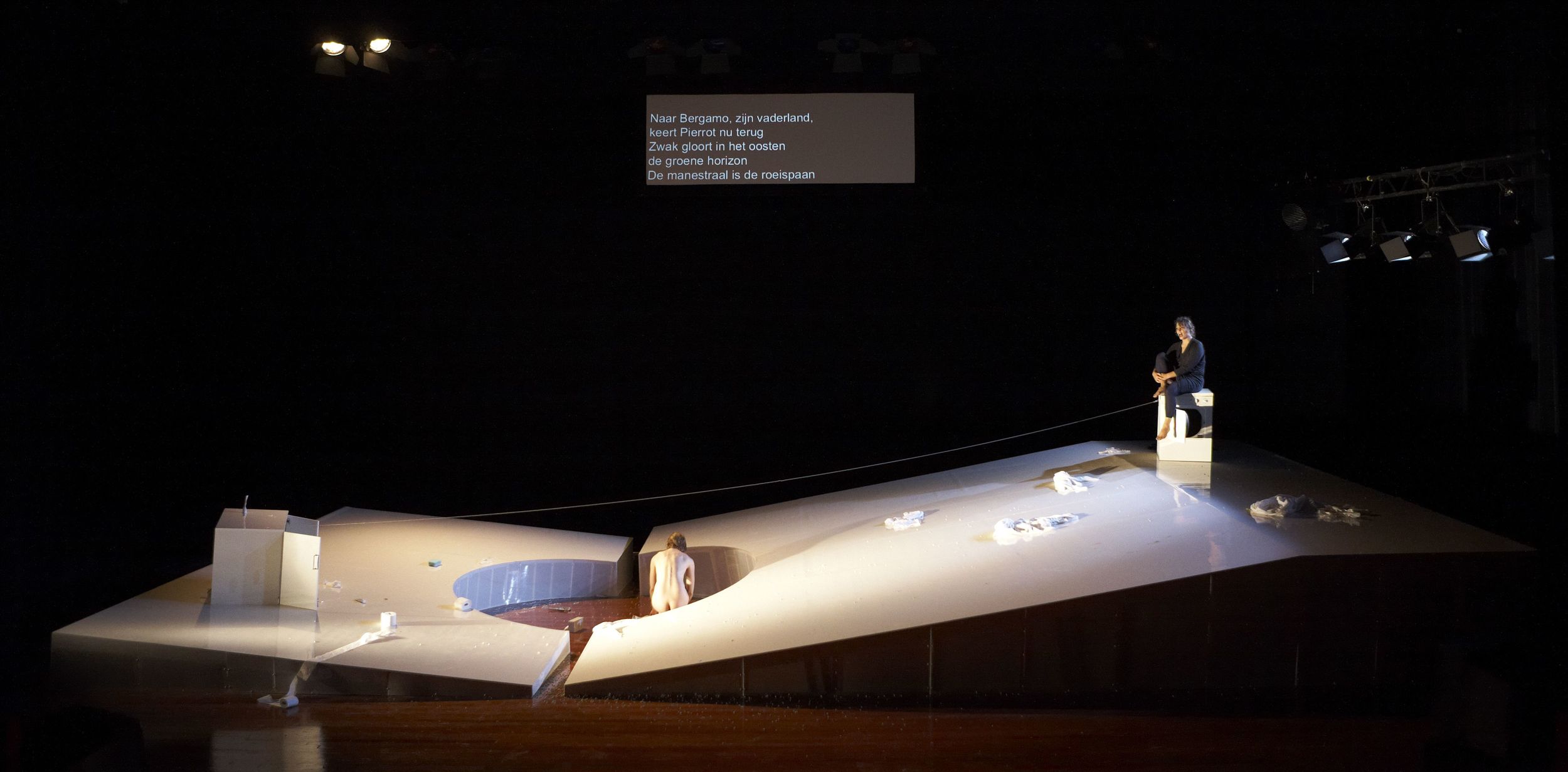

Miss Donnithorne’s Maggot //
Miss Donnithorne has really existed. She lived in Australia where she locked herself in her house for ever after being left at the altar by her groom. This woman (who was also the example for the character of Miss Havisham from ‘Great Expectations’ by Dickens) is the core of this monodrama of Maxwell Davies.
We see her twenty years after her wedding day. She still has her wedding dress on and is sitting between the remains of her wedding cake which is, as the title is already presuming, in a extensive state of decay. In this unsavory setting, she sings eight songs using every extremity of vocal possibilities to carry out her drama. Maxwell Davies writes a tour de force of vocal effects, from Sprechgesang to classical singing, falsetto and screaming. Instrumentally she is helped by balloons, metronomes, rattles, a series of flutes together with more common instruments.
